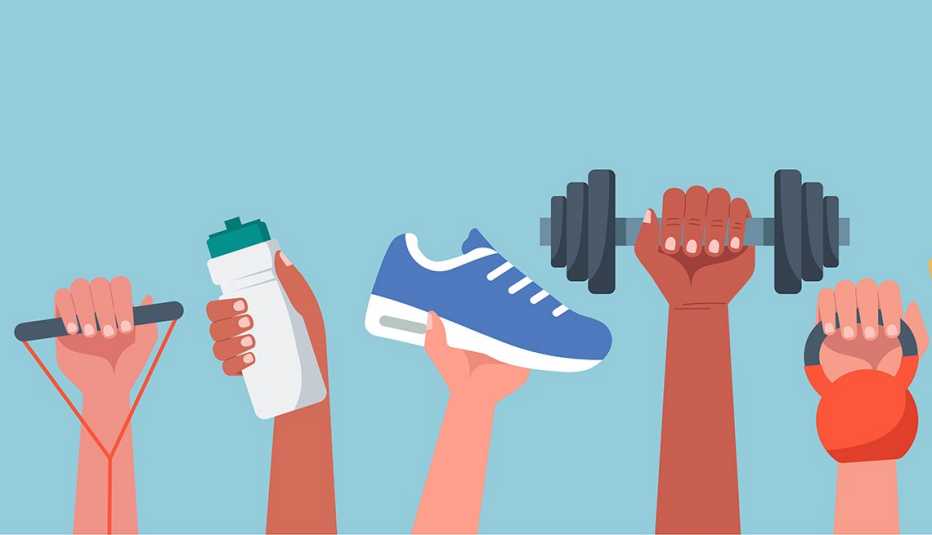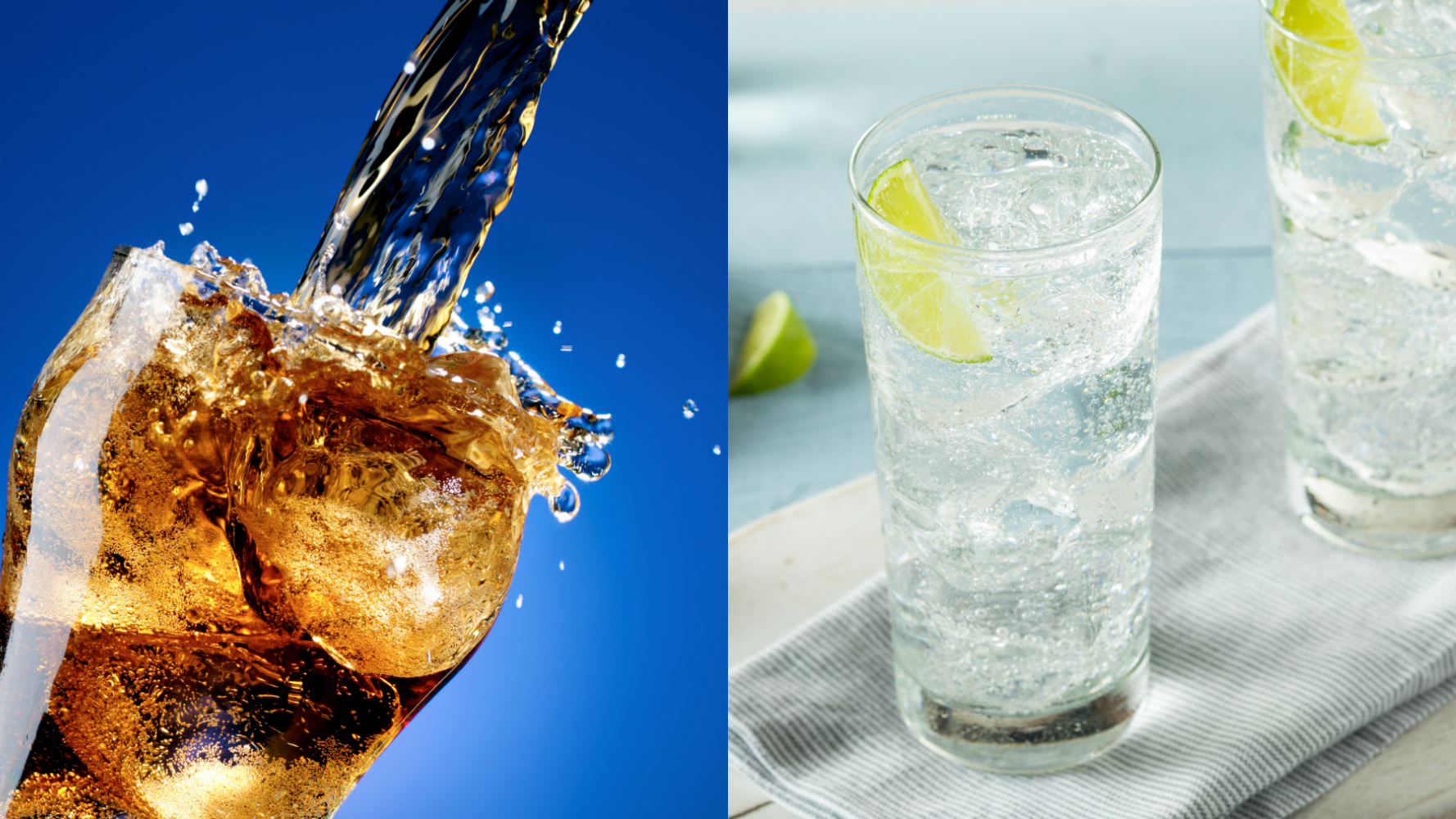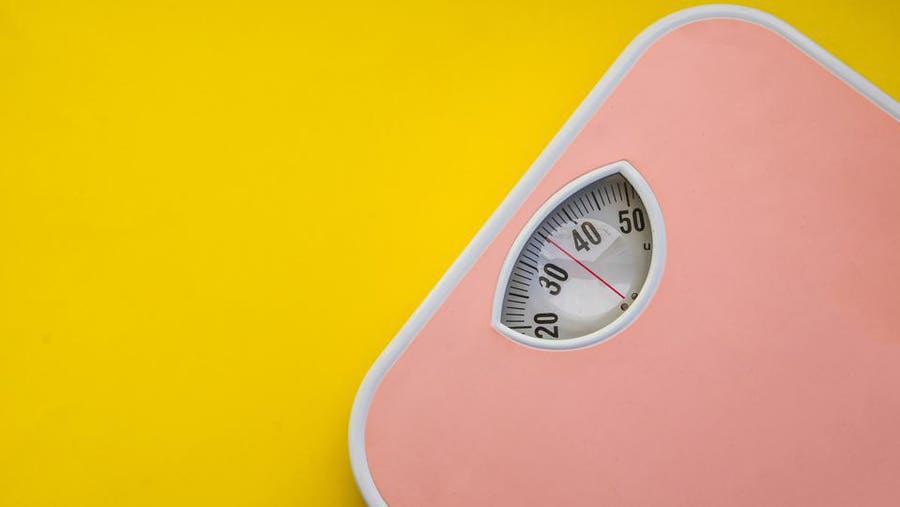Get enough sleep and enjoy exercise, lift weights, use fitness technology, consume more protein, fill up on fruits and vegetables, take up yoga, and eat mindfully. These are the easiest ways to lose weight after 50.
Incorporating a mix of moderate and vigorous exercise like swimming, walking, bicycling, running, and strength training can help burn off menopausal weight gain. High-intensity interval training (HIIT) is recommended for effective weight loss. Additionally, focusing on a diet filled with dark, leafy greens, brightly-colored vegetables, fruits, lean meat, and fish, while avoiding preservatives and pesticides by choosing organic options, can aid in weight loss.
Making healthy lifestyle changes and modifying your diet can help you lose weight at any age.

Credit: www.aarp.org
Importance Of Sleep
Getting enough sleep is crucial for weight loss, especially after 50. Lack of quality sleep has been linked to obesity, so prioritize sleep along with exercise, weight lifting, fitness technology, and mindful eating to shed pounds effectively.
Link Between Lack Of Sleep And Obesity
Getting enough sleep is crucial for maintaining a healthy weight, especially as we age. Numerous studies have shown a strong link between lack of sleep and obesity. When we don’t get enough quality sleep, it disrupts our body’s hormonal balance and can lead to weight gain.
One reason for this is that lack of sleep affects two key hormones that regulate appetite – ghrelin and leptin. Ghrelin is responsible for stimulating hunger, while leptin signals to the brain when we are full. When we are sleep-deprived, ghrelin levels increase, making us feel hungrier, and leptin levels decrease, leading to a decreased feeling of fullness. This hormonal imbalance can cause overeating and contribute to weight gain.
Tips For Getting Enough Sleep
Ensuring you get enough quality sleep is essential for helping you lose weight after 50. Here are some tips to improve your sleep:
- Establish a regular sleep schedule: Go to bed and wake up at the same time every day, even on weekends.
- Create a sleep-friendly environment: Make sure your bedroom is cool, dark, and quiet. Use blackout curtains, earplugs, or a white noise machine if necessary.
- Avoid electronic devices before bed: The blue light emitted by screens can interfere with your sleep. Turn off electronic devices at least an hour before bedtime.
- Practice relaxation techniques: Try deep breathing exercises, meditation, or listening to calming music before bed to help you relax and prepare for sleep.
- Avoid caffeine and alcohol: Both can disrupt your sleep cycle. Limit your consumption, especially in the evening.
Implementing these tips can help improve your sleep quality and ensure you are well-rested, which in turn can support your weight loss efforts. Don’t underestimate the impact of a good night’s sleep on your overall health and well-being.

Credit: www.prevention.com
Exercise
Exercise is a crucial component of any weight loss plan, especially for individuals who are over 50. Incorporating regular physical activity into your routine can not only help you shed the extra pounds but also contribute to overall health and well-being. In this section, we will explore some enjoyable exercises for weight loss, the benefits of weightlifting, and how you can utilize fitness technology to stay motivated on your weight loss journey.
Enjoyable Exercises For Weight Loss
When it comes to exercise, finding enjoyable activities is key to staying consistent. Engaging in exercises that you genuinely enjoy can make your weight loss journey more enjoyable and sustainable. Here are some exercises that you may find enjoyable while promoting weight loss:
- Swimming
- Walking
- Bicycling
- Running
Incorporating these aerobic exercises into your routine can help burn calories and boost weight loss. Remember to start with a mix of moderate and vigorous exercises to burn off menopausal weight gain.
Benefits Of Weightlifting
Weightlifting is often overlooked when it comes to weight loss, especially by individuals over 50. However, incorporating resistance or strength training into your exercise regimen can offer numerous benefits for weight loss and overall health. Some benefits of weightlifting include:
- Building muscle mass
- Increasing metabolism
- Burning calories
- Strengthening bones
By increasing muscle mass, you can boost your metabolism and burn more calories even at rest. Additionally, weightlifting helps strengthen bones, reducing the risk of osteoporosis.
Utilizing Fitness Technology For Motivation
In today’s digital age, fitness technology can be a game-changer when it comes to staying motivated on your weight loss journey. There are various fitness apps, wearable devices, and online programs that can help you track your progress, set goals, and stay accountable. Some ways to utilize fitness technology for motivation include:
- Using a fitness tracker to monitor your daily activity and calorie burn
- Joining online communities or challenges to connect with like-minded individuals
- Participating in virtual fitness classes or workouts
- Setting reminders and alarms on your phone to stay consistent with your exercise routine
By leveraging fitness technology, you can stay motivated, track your progress, and make adjustments to your exercise routine as needed, ensuring you stay on track with your weight loss goals.
Diet And Nutrition
Looking to lose weight after 50? Experts recommend getting enough sleep, incorporating exercise, especially high-intensity interval training (HIIT), and increasing protein and fruit and vegetable intake. Other tips include practicing yoga and mindful eating. Remember, sustainable weight loss comes from making healthy lifestyle changes.
Diet and NutritionIncreasing protein intake One of the easiest ways to lose weight after 50 is to increase your protein intake. Consuming enough protein helps preserve and build muscle mass, which is essential for maintaining a healthy metabolism and burning calories efficiently. Include protein-rich foods such as lean meats, poultry, fish, eggs, dairy, legumes, and nuts in your meals. Consider incorporating protein supplements such as whey or plant-based protein powders into your diet to meet your protein requirements. However, it’s important to consult with a healthcare professional or a registered dietitian before making any dietary changes. Importance of fruits and vegetables Eating a variety of fruits and vegetables is crucial when it comes to weight loss after 50. These colorful, nutrient-dense foods are low in calories and high in vitamins, minerals, and dietary fiber. They help keep you feeling satisfied, promote a healthy digestive system, and may reduce the risk of chronic diseases. Aim to fill half of your plate with fruits and vegetables at each meal. Choose a wide range of colors, such as dark leafy greens, red and orange peppers, blueberries, and bananas, to ensure you’re getting a diverse array of nutrients. The role of mindfulness in eating Practicing mindfulness while eating is an effective strategy for weight loss after 50. Mindful eating involves being fully present and aware of your food choices, eating habits, and satiety signals. Slow down and savor each bite, paying attention to the taste, texture, and satisfaction you derive from your meals. This can help you recognize hunger and fullness cues, preventing overeating and promoting portion control. Minimize distractions such as television or mobile devices during mealtime to fully focus on your eating experience. Mindfulness techniques, such as deep breathing or meditation before meals, can also enhance your connection with food. In conclusion, focusing on diet and nutrition plays a crucial role in losing weight after 50. Increasing protein intake helps preserve muscle mass and improves metabolism. Consuming ample fruits and vegetables provides essential nutrients and promotes satiety. Practicing mindful eating enhances your awareness of food choices and portion control. By incorporating these strategies into your lifestyle, you can achieve sustainable weight loss and improve overall health. Remember to consult with healthcare professionals or registered dietitians for personalized guidance and recommendations.Combating Menopausal Weight Gain
As women age and go through menopause, they often experience weight gain due to hormonal changes. To combat this, it’s important to focus on maintaining a healthy lifestyle by incorporating regular exercise and making dietary adjustments. In this article, we will explore the importance of moderate and vigorous exercise and the benefits of high-intensity interval training (HIIT) for losing weight after 50.
The Importance Of Moderate And Vigorous Exercise
When it comes to losing weight after 50, incorporating a mix of moderate and vigorous exercise into your routine is crucial. This will not only help burn off menopausal weight gain but also improve cardiovascular health and boost metabolism. Some examples of moderate aerobic exercises include swimming, walking, biking, and running.
In addition to aerobic exercises, it is also important to include resistance or strength training in your workout regimen. This helps build and maintain muscle mass, which can enhance weight loss by increasing overall calorie burn. Weightlifting, bodyweight exercises, and using resistance bands are great options for incorporating strength training into your routine.
Benefits Of High-intensity Interval Training (hiit)
One effective method for losing weight after 50 is high-intensity interval training, commonly known as HIIT. HIIT involves short bursts of intense activity followed by periods of rest or lower-intensity exercise. This type of training has been shown to accelerate fat burning, improve cardiovascular fitness, and increase metabolic rate.
The beauty of HIIT is that it can be tailored to individual fitness levels and preferences. Whether you prefer cycling, running, or bodyweight exercises, you can customize your HIIT workouts to suit your needs. By pushing your body to exert maximum effort during the high-intensity intervals, you maximize calorie burn and stimulate muscle growth.
Furthermore, HIIT workouts are time-efficient, making them ideal for busy individuals. They typically last around 20-30 minutes, including warm-up and cool-down periods, yet deliver significant results. Incorporating HIIT into your exercise routine two to three times a week can help you shed excess pounds and maintain a healthy weight.
In conclusion, combating menopausal weight gain requires a holistic approach that combines moderate and vigorous exercise with a healthy diet. Incorporating regular aerobic exercises, strength training, and high-intensity interval training can all contribute to successful weight loss after 50. By following these guidelines and staying consistent, you can achieve your weight loss goals and maintain a healthy lifestyle.
Expert Tips And Recommendations
Experts agree that the easiest ways to lose weight after 50 include getting enough sleep, enjoying exercise, lifting weights, using fitness technology, consuming more protein, filling up on fruits and vegetables, taking up yoga, and eating mindfully. Incorporating a mix of moderate and vigorous exercise, such as swimming, walking, bicycling, and running, along with high-intensity interval training (HIIT), can also be beneficial.
Additionally, maintaining a diet filled with dark, leafy greens, brightly-colored vegetables, fruits, lean meat, and fish, while avoiding preservatives and pesticides, can support weight loss goals.
Approved Workouts And Diet Tweaks
To effectively lose weight after 50, experts recommend incorporating approved workouts and making diet tweaks. Start with a mix of moderate and vigorous exercises such as swimming, walking, bicycling, and running. To target menopausal weight gain, high-intensity interval training (HIIT) is recommended. Additionally, include resistance or strength training exercises to build muscle and boost metabolism.
When it comes to diet, make sure your meals are filled with dark, leafy greens, brightly-colored vegetables, fruits, lean meat, and fish. To ensure a healthier lifestyle, opt for organic foods to avoid preservatives and pesticides. Go for a balanced and nutritious diet that supports weight loss while providing essential nutrients for overall well-being.
Emphasizing Organic And Nutritious Foods
Emphasizing the importance of organic and nutritious foods, experts suggest including a variety of dark, leafy greens, brightly-colored vegetables, and fruits in your diet. These foods are packed with essential vitamins, minerals, and antioxidants that promote weight loss and overall health. Additionally, incorporating lean meat and fish can provide protein, which aids in muscle growth and repair.
Choosing organic foods is beneficial as it helps avoid the intake of harmful preservatives and pesticides. By opting for organic options, you can ensure that your body receives clean and chemical-free fuel that supports weight loss and overall well-being.
Sustainable Lifestyle Changes For Weight Loss
Experts agree that sustainable lifestyle changes are key for successful weight loss after 50. It’s crucial to make long-term modifications to your habits and routines to achieve lasting results. Incorporate healthy practices such as mindful eating, regular exercise, adequate sleep, and stress management.
Mindful eating involves paying attention to your body’s hunger and fullness cues, as well as choosing whole, nutritious foods. This helps you build a better relationship with food and promotes healthier eating patterns. Regular exercise, including both aerobic and strength training activities, is essential for burning calories, boosting metabolism, and maintaining muscle mass.
Getting enough sleep is equally important, as studies have shown a link between lack of quality sleep and obesity. Aim for 7-8 hours of uninterrupted sleep each night to support weight loss and overall well-being. Lastly, managing stress through relaxation techniques, such as yoga or meditation, can help prevent emotional eating and promote a positive mindset during your weight loss journey.
Challenges And Solutions
Achieving weight loss can be challenging at any age, but it becomes even more difficult after 50 due to various factors such as hormonal changes, a slower metabolism, and decreased muscle mass. However, there are solutions to these challenges that can help you achieve your weight loss goals and maintain a healthy lifestyle.
Addressing Weight Loss Challenges As You Age
As you age, certain challenges may arise that make weight loss more difficult. These challenges include hormonal changes, slower metabolism, and decreased muscle mass. However, there are strategies you can implement to overcome these challenges:
- Exercise regularly: Engaging in regular physical activity is crucial for weight loss at any age. Focus on a mix of moderate and vigorous exercises, including aerobic activities like swimming, walking, bicycling, and running, as well as strength training.
- Try high-intensity interval training (HIIT): HIIT workouts are effective for boosting metabolism and burning calories. Incorporate HIIT exercises into your routine for better results.
- Get enough sleep: Lack of quality sleep can disrupt your metabolism and lead to weight gain. Aim for 7-8 hours of uninterrupted sleep every night to support your weight loss efforts.
- Manage stress: Chronic stress can contribute to weight gain and hinder weight loss efforts. Practice stress-reducing techniques like meditation, yoga, or deep breathing exercises to manage stress effectively.
Modifying Diet And Lifestyle For Weight Loss At Any Age
Regardless of your age, modifying your diet and lifestyle is essential for successful weight loss. Here are some guidelines to follow:
- Eat a balanced and nutritious diet: Focus on consuming whole foods, including lean proteins, fruits, vegetables, and whole grains. Avoid processed foods and opt for organic options whenever possible to limit exposure to preservatives and pesticides.
- Control portion sizes: Pay attention to portion sizes to avoid overeating. Use smaller plates, measure your servings, and practice mindful eating to prevent mindless snacking.
- Stay hydrated: Drink plenty of water throughout the day to stay hydrated and support your body’s natural functions. Avoid sugary beverages and opt for water or herbal teas instead.
- Seek professional guidance: Consult with a registered dietitian or nutritionist to create a personalized meal plan that suits your specific needs and promotes healthy weight loss.
By addressing these weight loss challenges and modifying your diet and lifestyle, you can achieve weight loss after 50 and maintain a healthy weight in the long run.

Credit: www.prevention.com
Frequently Asked Questions For Experts Agree These Are The Easiest Ways To Lose Weight After 50
How Can I Lose 20 Pounds Fast After 50?
To lose 20 pounds fast after 50, here are some tips: get enough sleep, enjoy exercise, lift weights, use fitness technology, consume more protein, fill up on fruits and vegetables, take up yoga, and eat mindfully. Start with a mix of moderate and vigorous exercise, including aerobic and strength training.
Focus on high-intensity interval training for best results. Ensure your diet includes dark leafy greens, colorful vegetables, lean meat, and fish. Implement healthy lifestyle changes for sustainable weight loss.
What Is The Best Weight Loss Plan For Over 50?
The best weight loss plan for over 50 includes getting enough sleep, exercising regularly, lifting weights, using fitness technology, consuming more protein, eating fruits and vegetables, practicing yoga, and mindful eating. Incorporate a mix of moderate and vigorous exercise, including aerobic exercises and strength training.
Eat a diet rich in dark, leafy greens, colorful vegetables, lean meat, and fish. Implement healthy lifestyle changes for sustainable weight loss.
What Foods Should I Avoid To Lose Weight At 50?
To lose weight at 50, avoid foods that are high in sugar, unhealthy fats, and refined carbohydrates. Focus on eating a variety of fruits, vegetables, lean proteins, and whole grains. Incorporate regular exercise into your routine, including both cardio and strength training.
Prioritize getting enough sleep and practicing mindfulness when eating.
How Do You Lose Belly Fat After 50?
To lose belly fat after 50, follow these tips: 1. Get enough sleep and maintain good sleep quality. 2. Engage in regular exercise, including aerobic and strength training. 3. Use fitness technology to track your progress. 4. Increase your protein intake.
5. Eat a diet rich in fruits and vegetables. 6. Consider practicing yoga. 7. Practice mindful eating.
Conclusion
To lose weight after 50, experts agree on a few simple and effective strategies. Prioritize getting enough quality sleep, as studies have linked lack of sleep to obesity. Enjoy exercise, incorporating a mix of moderate and vigorous activities like swimming, walking, and strength training.
Consider using fitness technology to track your progress. Focus on consuming more protein, filling up on fruits and vegetables, and practicing mindful eating. You may also benefit from incorporating yoga into your routine. By following these tips, you can achieve your weight loss goals and improve your overall health.

